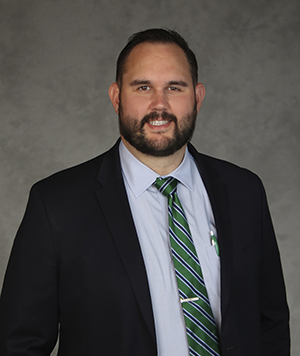by Ryan Walczak, MD,Lexington ENT & Allergy
Holes (perforations) that develop in the eardrum (tympanic membrane) occur fairly commonly for various reasons. We see them quite often in our practice, and sometimes, we even cause them. A patient may develop holes in the eardrum from prior surgery, particularly the placement of pressure-equalizing tubes. Other common causes are trauma, such as jumping into a lake and water rushing into the ear or being too aggressive when cleaning the ears with a cotton swab.
The eardrum can often heal on its own with time, but this is not always the case.
Perforations in the tympanic membrane can be a real problem, leading to hearing loss or frequent infections. Water and moisture can easily enter the middle ear through the perforation and become a breeding ground for infection.
A perforation may need surgical repair if it does not heal after a few months. Surgery to repair a perforation is an outpatient procedure. Your ENT surgeon will often utilize a graft of fascia harvested from behind the ear to close the perforation and facilitate the eardrum healing. The incision behind the ear to harvest the graft is usually well hidden by the outer ear.
While a cut or injury anywhere else in the body has underlying tissue to facilitate healing, the body must heal the eardrum over air, which is difficult. By placing tissue beneath the eardrum, we give it a scaffold to grow over. Risks of the surgery include failure for the graft to take, which happens about 20% of the time and results in persistent perforation. Sometimes, additional surgeries are required to close the hole.
If your doctor says you have a hole in your eardrum, you should see an ENT specialist. Often, they will have you undergo a hearing test and some other testing on the ear. Most importantly, they will assess the eardrum and the perforation using a microscope to better define the location and size and discuss whether surgery is right for you.

Ryan Walczak, MD,Lexington ENT & Allergy






Leave a comment